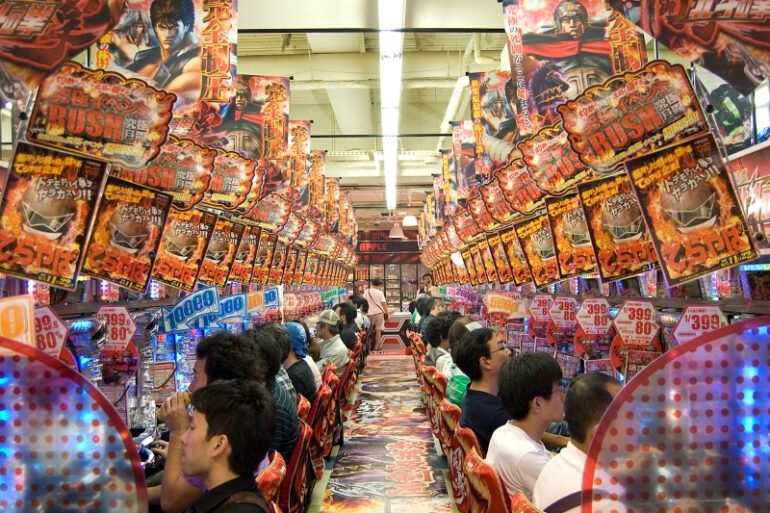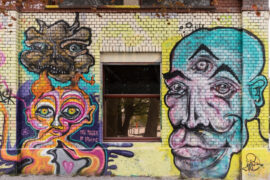Min Jin Lee’s novel and its new TV adaptation tell a bitter-sweet story about what different generations of Koreans had to endure between 1910s and 1990s under the discriminatory and harsh Japanese rule, striving and failing to integrate in a society that ghettoises them.
By Silvia Vacchelli
Picture: Tischbeinahe, CC BY-SA 3.0, via Wikimedia Commons
The history that we are taught in school is often very Western-centric. So, if we think about Japan between the late 1910s and the 1940s, we immediately associate it with the two World Wars; yet, in the same period, Japan had conquered and ruled over Korea with very strict and often inhumane laws. This important part of history, which is still underrepresented in schoolbooks, has been beautifully and tragically portrayed by Min Jin Lee in her novel Pachinko, and later in the 2022 TV series adapted from it.
The Novel
The novel is structured in three parts and tells the story of four generations of Korean individuals who work hard to provide the best future possible for their children under the Japanese iron-fist rule and the constant humiliations. The story follows mainly the life of Sunja, a poor Korean girl, who gets pregnant with the child of a rich married Korean man (Hansu) and has to move to Osaka when a young pastor (Isak) agrees to marry her. Readers must be warned that this book is rather bitter-sweet (more often bitter than sweet), and the author does not try to sugar-coat it, so that just when things seemed to have taken a good turn, war or an illness bring the characters down. The writing style is simple, some might argue overly simple, but it perfectly manages to paint the picture of what Koreans had to endure, living in overcrowded shacks and struggling to find jobs regardless of their education or family background.
A Quest for Belonging
The novel shows how different generations of Koreans respond to their need for belonging: the first generation of migrants, represented by Sunja who desperately misses her homeland and feels like an alien in a country in which she does not even understand the language. The second generation, that of Sunja’s sons, Noa and Mozasu, put their heart and soul to assimilate to the locals by speaking perfectly in Japanese, but they have to accept the only job for Korean expatriates, working in Pachinko gambling parlours.
Pachinko
USA 2022
1 season, 8 episodes
Created by: Soo Hugh
Starring: Soji Arai, Jin Ha, Jun-woo Han, and others
Finally, the last generation represented by Mozasu’s son, Solomon, is given the best private education and the best chance for a bright future, and yet, money is not enough to erase Solomon’s ethnicity, which in the end haunts him as much as it haunted his uncle before him.
The TV Series
In comparison to the book, which is written in chronological order, the TV series goes constantly back and forth between the present (1989) in Japan, following Solomon’s life, and the past (1910 -1930) showing Sunja’s childhood in Korea and then her struggle as a young mother in Osaka. Moreover, from the second episode onwards the story and the characters significantly detach from the book, like in episode 7 which is completely dedicated to Hansu’s background and the earthquake that happened in Kanto. In general, the characters in the TV series are given more willpower and they take matters into their own hands, even if their actions often have bad consequences, while in the book they are powerless individuals at the mercy of a cruel and unjust destiny. Finally, a nice touch of the TV series is the decision to end the season with an interview with some old Korean women who have actually lived through similar struggles and hardships in Japan as the fictional ones portrayed in the series.
Pachinko, whether the book or the TV series, is a much-needed representation of a chapter of history that has been overlooked and provides a deep reflection on how racial discrimination and prejudice can influence the lives of individuals through generations, regardless of their hard-working attitude to attain a better life.






